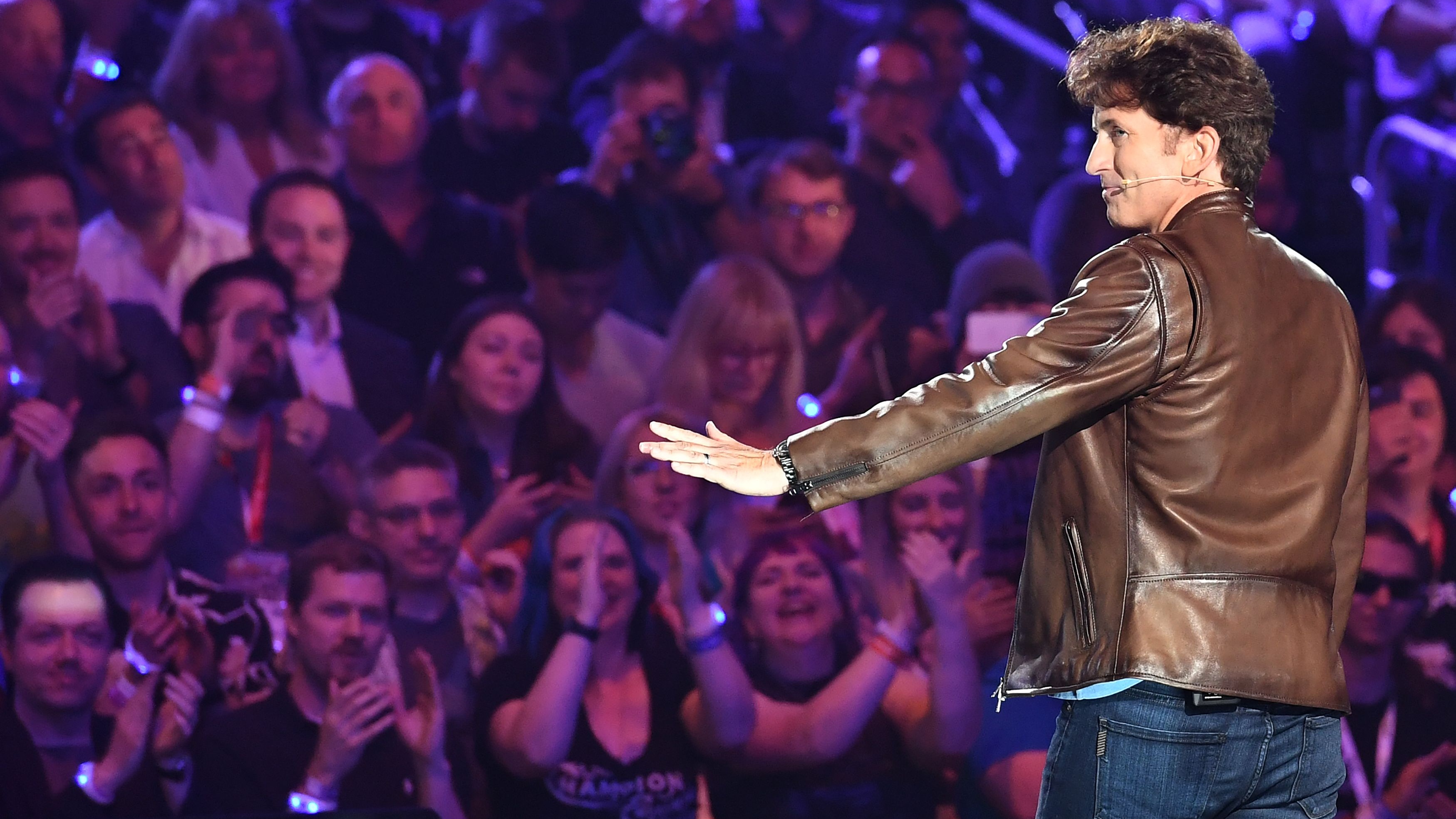Skyrim's retired lead designer says anything other than the 'Bethesda usual' has to be approved by Todd Howard: 'He doesn't believe it's true, but unfortunately it's true'
At Bethesda, the buck stops with Todd.

Liked Starfield? Hated Starfield? You probably have Todd Howard to thank. A recent chat between MinnMax and Skyrim lead designer Bruce Nesmith shed some light on Bethesda's structure and organisation, and it sure sounds like pretty much every choice the company makes needs Howard's stamp of approval before it can go ahead, even as it's grown bigger over the years. To be fair to Howard, though, it seems like that's in spite of his own wishes.
"All decisions run through Todd," the retired Nesmith told MinnMax's Ben Hanson, "[Todd] would hate, hate, hate me for saying that because he doesn't believe it's true, but unfortunately it's true."
The way Nesmith tells it, it really sounds like the relative, ah, similarity of the games in Bethesda's output over the last decade or so can to a significant extent be attributed to Howard's weight at the company. "If you want to have anything different, other than the 'Bethesda usual' on some particular aspect or you have something else you want to propose, it's somehow got to get in front of him."
"I will give him full credit," Nesmith continued later on, "he has tried really really hard to not be the 'last say' guy, [but] it hasn't worked out that way. That's not something he wants intellectually, I think it ends up being that way because he's somebody who has opinions and whose opinions are valuable."
It's interesting and, I think, revealing to put those comments in the context of something Nesmith says a bit later on in the interview, that Howard has "an attribute that none of the rest of us did: he was always able to put himself into the seat of your everyday player… he always was able to see it from Joe Average Player's perspective." That would certainly explain the general tenor of everything Bethesda has made from Oblivion onwards.
The studio has made some bangers in that time, let's be clear, but none of it ever felt unsafe. The notion that Bethesda has been centering "Joe Average Player's perspective," via Howard, on all its major decisions since at least the mid-2000s really does click some pieces into place about the development of its design philosophy.
It's also not hard to see why that particular superpower of Howard's would eventually turn into a bottleneck for the entire company: it's made them a phenomenally successful, albeit less interesting, game developer. Why wouldn't you look for Howard's imprimatur on everything you're making—even if on a personal level he'd prefer not to be the alpha and omega of Bethesda's decisions—when following his lead has historically bred huge success?
Keep up to date with the most important stories and the best deals, as picked by the PC Gamer team.
It can cause problems, too, beyond the disappointment of grognards like me whose ears perk up whenever someone whispers "Morrowind" into a mountain breeze. Nesmith told MinnMax that Bethesda's growth and the Covid-19 pandemic really revealed the weakness of its Howard-centric decision making.
"You didn't get to interact with Todd as much anymore," said Nesmith of Bethesda's recent history, "when you're running six different studios and you've got a dozen projects—although usually only one really big one—going on at a time, you know, he's only one man, he doesn't have the facetime to do that anymore!"
Perhaps it's no wonder, then, that several of the Bethesda old guard, including Nesmith himself, have quietly left the company recently, and why even Howard himself has been talking about his eventual departure. It's just my take based on what Nesmith said in the interview, but I have to imagine running every key choice through Howard is both limiting on Bethesda's growth as a company and, you've gotta think, pretty taxing on the man himself.
Something I think about a lot is this oral history of Morrowind over on Polygon, in which concept artist and writer (and the guy behind the wonderful 36 Lessons of Vivec) Michael Kirkbride tells a story about getting "weird" ideas past Howard.
Kirkbride wanted to fill Morrowind with strange monsters, but knew anything too out-there would scare off his boss. So what he did was draw two versions of every monster: "the one that was weird… and then one that was fucking crazy," he'd show Howard the second one, get rejected, and then come back with the first, which would invariably be accepted into the game simply because it seemed so much more normal by comparison.
He's probably too wily for tricks like that these days, and if I were a dev at Bethesda, I'd feel a bit sheepish about trying to get one over on the Todd Howard. I suspect that goes some way to explaining why Bethesda's recent games, Starfield included, have felt so darn familiar.

One of Josh's first memories is of playing Quake 2 on the family computer when he was much too young to be doing that, and he's been irreparably game-brained ever since. His writing has been featured in Vice, Fanbyte, and the Financial Times. He'll play pretty much anything, and has written far too much on everything from visual novels to Assassin's Creed. His most profound loves are for CRPGs, immersive sims, and any game whose ambition outstrips its budget. He thinks you're all far too mean about Deus Ex: Invisible War.
- Dave JonesVideo Producer

